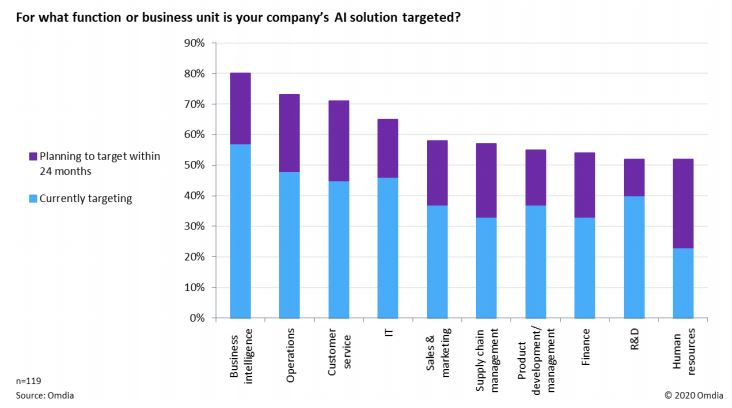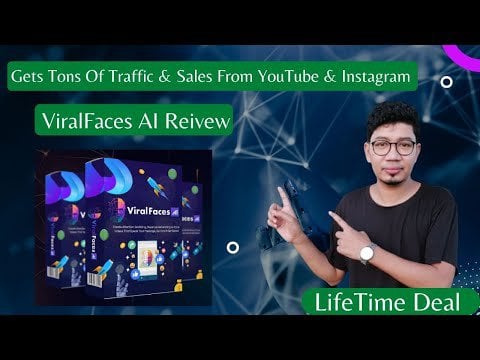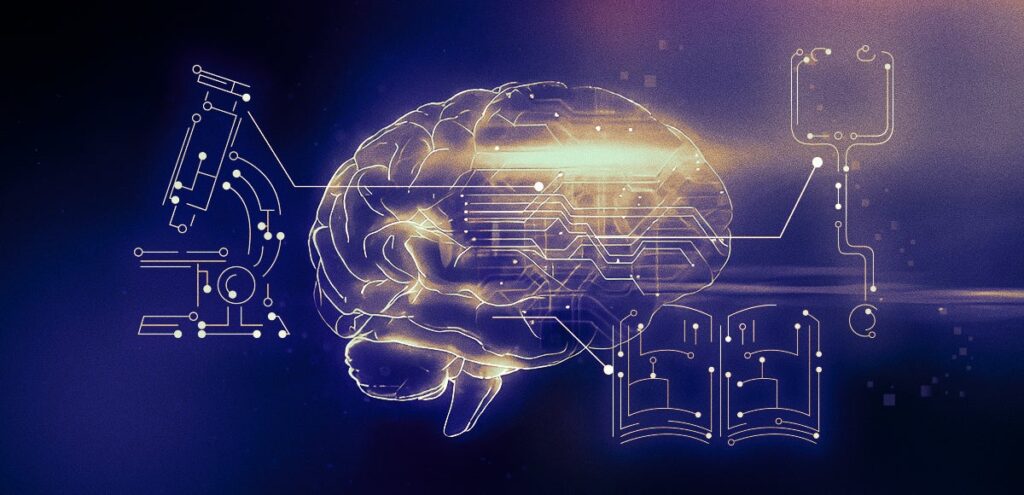Targeted AI solutions provide precise and effective solutions through artificial intelligence technology. These solutions are designed to address specific needs and target specific problems, providing tailored solutions that meet specific goals and objectives.
With the ability to analyze vast amounts of data and learn from patterns and trends, targeted AI solutions can offer personalized recommendations and predictions that help optimize processes, improve decision-making, and drive better outcomes. These solutions are increasingly being used across various industries, such as healthcare, finance, marketing, and customer service, to gain a competitive edge and enhance business performance.
With their ability to deliver accurate insights and automate repetitive tasks, targeted AI solutions are revolutionizing the way organizations operate and achieve their goals.
The Importance Of Targeted Ai Solutions
Enhancing Efficiency And Productivity
Targeted AI solutions play a crucial role in enhancing efficiency and productivity in various industries. By leveraging advanced algorithms and machine learning capabilities, these solutions automate repetitive tasks, allowing employees to focus on more strategic and value-added activities. For instance, in manufacturing, AI-powered robots can handle repetitive assembly line tasks, increasing productivity and reducing errors. In customer service, AI chatbots are capable of quickly answering frequently asked questions, freeing up customer service representatives to handle more complex inquiries.
Moreover, targeted AI solutions can analyze large volumes of data at an unprecedented speed, extracting valuable insights and patterns that were once nearly impossible to detect. This not only saves time but also provides organizations with a competitive advantage. By automating data analysis, businesses can quickly identify trends, anomalies, and customer preferences, which can then be used to drive innovation and improve decision making.
Improving Decision Making
With the help of targeted AI solutions, decision making becomes more data-driven and accurate. AI algorithms can process vast amounts of data from various sources, allowing organizations to make informed decisions based on factual evidence rather than gut feelings. For example, in healthcare, AI systems can analyze medical records, symptoms, and test results to help doctors make accurate diagnoses and recommend suitable treatment plans.
Additionally, targeted AI solutions can provide real-time data insights and predictive analytics, enabling organizations to anticipate market trends, identify potential risks, and make timely strategic decisions. By harnessing the power of AI, businesses can mitigate risks, optimize processes, and seize new opportunities, giving them a competitive edge in a rapidly changing business landscape.
In conclusion, targeted AI solutions play a vital role in enhancing efficiency, improving decision-making, and driving innovation across various industries. By leveraging AI technologies, organizations can streamline operations, automate processes, and optimize productivity. Furthermore, AI-powered analytics enable businesses to gain valuable insights and make data-driven decisions that lead to better outcomes. As AI continues to advance, the importance of targeted AI solutions will only grow, revolutionizing industries and shaping the future of work.
Applications Of Targeted Ai Solutions
Targeted AI solutions have revolutionized various industries, enhancing efficiency, accuracy, and decision-making capabilities. With the ability to analyze vast amounts of data swiftly, AI algorithms can provide actionable insights and tailor experiences according to individuals’ needs. In this blog post, we will explore three key applications of targeted AI solutions: personalized marketing, healthcare diagnostics, and cybersecurity.
Personalized Marketing
Personalized marketing is one of the most widely adopted applications of targeted AI solutions in the business world. By leveraging AI algorithms, companies can analyze consumer behavior, preferences, and purchase history to create tailored marketing campaigns. This approach increases customer engagement, conversion rates, and ultimately boosts revenue.
With AI-powered tools, marketers can:
- Gather and analyze customer data from various sources, such as social media, web browsing history, and past purchases, to gain valuable insights.
- Create highly targeted advertisements and messaging that resonate with specific customer segments.
- Automate personalized email campaigns and deliver them at optimal times to maximize open and click-through rates.
- Optimize website content in real-time based on user preferences and behavior, improving the user experience and increasing conversions.
Healthcare Diagnostics
In the healthcare industry, targeted AI solutions are transforming diagnostics and improving patient outcomes. With advanced algorithms, AI can analyze medical imaging, patient records, and genetic data to assist healthcare professionals in accurate diagnoses and personalized treatment plans.
Here are some key applications of targeted AI solutions in healthcare diagnostics:
- Interpretation of medical imaging, such as X-rays, MRIs, and CT scans, to identify abnormalities or diseases at an early stage.
- Analyze patient data, including symptoms, medical history, and genetics, to provide personalized treatment recommendations.
- Assist doctors during surgery by providing real-time insights and guidance, reducing the risk of complications.
- Enable remote monitoring and predictive analytics, allowing healthcare providers to intervene proactively and prevent potential health issues.
Cybersecurity
In today’s digital age, cybersecurity is of paramount importance for individuals and organizations alike. Targeted AI solutions play a crucial role in protecting sensitive data, identifying potential threats, and fortifying cybersecurity defenses.
Here’s how targeted AI solutions contribute to cybersecurity:
- Identify patterns in network traffic and detect anomalies that may indicate a cyberattack in progress.
- Automatically respond to security incidents by isolating affected systems and mitigating the impact.
- Enhance security systems through continuous learning, enabling them to adapt to new threats and vulnerabilities.
- Improve fraud detection and prevention in financial transactions by analyzing patterns and user behavior.
Challenges In Developing Targeted Ai Solutions
Developing targeted AI solutions comes with its fair share of challenges. These challenges range from data privacy and ethics to limited generalization. In order to harness the full potential of AI technology while ensuring its responsible and effective use, it is crucial to address and overcome these challenges.
Data Privacy And Ethics
Data privacy and ethics are key concerns when developing targeted AI solutions. As AI algorithms rely heavily on data to make informed decisions, there is a risk of compromising individuals’ privacy and violating ethical norms. It is important to establish strict protocols and guidelines to protect user data from unauthorized access and ensure its ethical use. This involves implementing robust data security measures, obtaining informed consent, and adhering to regulatory frameworks related to data privacy and protection.
Limited Generalization
Another challenge in developing targeted AI solutions lies in limited generalization. AI algorithms are designed to learn and make predictions based on specific datasets. However, this can lead to limited generalization when these algorithms are applied to new, unseen data. The lack of generalization can result in inaccurate predictions and limited applicability of AI solutions in real-world scenarios. Overcoming this challenge requires continuous training and retraining of AI models using diverse datasets, ensuring they are capable of handling a wide range of situations and variables.

Credit: www.qure.ai
Driving Factors For The Adoption Of Targeted Ai Solutions
Targeted AI solutions have emerged as a powerful tool for businesses in various industries, revolutionizing the way they operate and achieve their goals. This technology has the potential to streamline processes, enhance decision-making, and unlock new opportunities. There are several driving factors that have accelerated the adoption of targeted AI solutions in recent years.
Increasing Data Availability
The availability of data is one of the key factors driving the adoption of targeted AI solutions. With the advent of digital transformation, businesses now have access to vast amounts of data from numerous sources. This includes customer behavior, sales records, social media interactions, and more. The abundance of this data provides businesses with the necessary fuel to feed into AI algorithms and obtain valuable insights.
AI algorithms can analyze this data and identify patterns, trends, and correlations that humans may not be able to recognize on their own. By leveraging AI technology, businesses can extract valuable information from their data, uncover hidden opportunities, and make data-driven decisions.
Advancements In Machine Learning
Machine learning plays a crucial role in targeted AI solutions, and recent advancements in this field have contributed to the widespread adoption of AI technology. Machine learning algorithms have become more sophisticated and capable of handling complex tasks. They have the ability to learn from patterns and examples, improving their performance over time.
The advancements in machine learning have enabled AI solutions to perform tasks such as natural language processing, image recognition, and predictive analytics with high accuracy. This has opened up new possibilities for businesses in various sectors, including healthcare, finance, retail, and manufacturing.
The combination of increasing data availability and advancements in machine learning has created a perfect storm for the adoption of targeted AI solutions. Businesses are realizing the potential of AI in transforming their operations, improving efficiencies, and gaining a competitive edge in the market. As the technology continues to evolve, we can expect to see even greater adoption of targeted AI solutions in the future.
Key Technologies In Targeted Ai Solutions
Targeted AI solutions rely on several key technologies to deliver accurate and effective results. By leveraging these cutting-edge technologies, businesses can optimize their decision-making processes, improve customer experiences, and streamline operations. In this article, we will explore three essential technologies in targeted AI solutions: Machine Learning, Natural Language Processing, and Computer Vision.
Machine Learning
Machine Learning is a critical component of targeted AI solutions. It involves the development of algorithms and statistical models that allow computer systems to learn from and improve through experience. With machine learning, businesses can analyze vast amounts of data to identify patterns, make predictions, and automate decision-making processes.
Natural Language Processing
Natural Language Processing (NLP) plays a significant role in targeted AI solutions. It focuses on enabling computers to understand, interpret, and respond to human language in a way that is both meaningful and contextually relevant. Using NLP, businesses can develop chatbots, virtual assistants, and sentiment analysis tools that enhance communication with customers, improve customer support, and gather valuable insights from text data.
Computer Vision
Computer Vision is another crucial technology in targeted AI solutions. It enables machines to analyze and interpret visual data, including images and videos. By leveraging computer vision technologies, businesses can automate processes such as image classification, object detection, and facial recognition. This technology finds applications in various domains, including security, healthcare, retail, and manufacturing.
Best Practices For Implementing Targeted Ai Solutions
When it comes to implementing targeted AI solutions, there are several best practices that must be followed to ensure successful outcomes. These practices help organizations optimize data preparation and cleaning, and continuously evaluate the performance of their AI models. By adhering to these practices, businesses can drive accurate insights, make informed decisions, and achieve their desired outcomes. In this section, we will explore two key best practices for implementing targeted AI solutions: Data Preparation and Cleaning and Continuous Model Evaluation.
Data Preparation And Cleaning
Data preparation and cleaning is a critical step in the implementation of targeted AI solutions. Inaccurate or incomplete data can significantly impact the performance and reliability of AI models, leading to erroneous insights and poor decision-making. To optimize data preparation and cleaning, organizations should follow these best practices:
- Understand the data requirements: Before starting the data preparation process, it is essential to understand the specific requirements of the AI model and identify the relevant data sources.
- Collect and organize data: Gather the required data from multiple sources, ensuring it is properly labeled and categorized to facilitate effective analysis.
- Remove outliers and duplicates: Analyze the data for any outliers or duplicate entries and remove them to maintain data integrity.
- Cleanse and normalize the data: Standardize the data by removing any inconsistencies, errors, or missing values. This includes correcting typos, formatting dates, and ensuring consistent units of measurement.
- Verify data quality: Perform quality checks on the prepared data to ensure it meets the required standards, such as completeness, consistency, and accuracy.
Continuous Model Evaluation
Continuous model evaluation is essential to ensure that AI solutions are delivering accurate and relevant insights. By regularly evaluating the performance of AI models, organizations can identify any deviations or issues and take corrective actions. Here are some best practices for continuous model evaluation:
- Establish evaluation metrics: Define the key performance indicators (KPIs) that align with the objectives and expected outcomes of the AI solution.
- Monitor model performance: Continuously monitor the performance of the AI models against the defined metrics to identify any deviations or deterioration in accuracy.
- Track data drift: Regularly assess the data used by the AI models to identify any changes or drifts in the data distribution that may affect the model’s performance.
- Update models and retrain: If performance issues are detected, update the AI models, retrain them with additional data, or fine-tune the existing models to improve accuracy.
- Implement feedback loops: Establish feedback loops with relevant stakeholders to gather insights on the effectiveness of AI solutions and incorporate their feedback for improvement.
By following these best practices for data preparation and cleaning, as well as continuous model evaluation, organizations can ensure the implementation of targeted AI solutions that deliver accurate insights and drive informed decision-making. These practices contribute to the overall success of AI initiatives and help businesses stay ahead in today’s competitive landscape.
Impacts Of Targeted Ai Solutions On Industries
Targeted AI solutions are revolutionizing industries by providing precise and effective solutions. They streamline processes, increase efficiency, and drive growth, making businesses more competitive in the modern era. Embracing these advancements is crucial for staying ahead in today’s fast-paced and technology-driven world.
In today’s rapidly evolving technological landscape, artificial intelligence (AI) solutions are revolutionizing industries across the board. Targeted AI solutions, in particular, have emerged as powerful tools that are driving significant transformations in various sectors. From streamlining processes to enhancing customer experiences, AI is making its presence felt in the automotive industry, retail sector, and financial services. Let’s take a closer look at the impacts of targeted AI solutions on these industries.
Automotive Industry
The automotive industry is undergoing a profound transformation with the integration of AI solutions. AI-powered technologies like machine learning and computer vision are enabling vehicles to become smarter, safer, and more efficient. These solutions are optimizing various aspects of the automotive sector, including manufacturing, retail, and customer service.
Several automotive manufacturers are utilizing targeted AI solutions to improve production processes. AI algorithms analyze vast amounts of data to identify patterns, predict equipment failures, and optimize production schedules. By doing so, manufacturers can enhance operational efficiency, reduce costs, and minimize downtime.
Furthermore, AI has also revolutionized vehicle design and engineering. Design engineers leverage AI to create innovative designs, simulate performance, and improve fuel efficiency. Through virtual testing and analysis, AI solutions greatly accelerate the development cycle, allowing automakers to bring new, advanced models to market faster.
Retail Sector
The retail sector is another industry that has experienced significant impacts due to targeted AI solutions. With AI-powered analytics and personalization, retailers can better understand their customers, tailor marketing campaigns, and optimize inventory management.
By leveraging AI, retailers can gain insights from customer data like purchasing patterns, preferences, and demographics. These insights enable them to create targeted marketing strategies that drive customer engagement and boost sales. AI-powered recommendation systems make personalized product recommendations to consumers, enhancing their shopping experiences and increasing customer loyalty.
AI also plays a critical role in inventory management. Through sophisticated demand forecasting models, retailers can optimize their inventory levels, reducing overstock and avoiding stockouts. AI algorithms analyze historical sales data, market trends, and external factors to predict future demand accurately. This capability allows retailers to make data-driven decisions and ensure that the right products are available at the right time and in the right quantities.
Financial Services
Targeted AI solutions are transforming the financial services industry by automating mundane tasks, enhancing security measures, and improving customer experiences. AI-powered chatbots and virtual assistants are replacing traditional customer service representatives, providing round-the-clock assistance and personalized support.
Furthermore, AI solutions are strengthening security measures within the financial sector. By analyzing vast amounts of data and detecting anomalies, AI algorithms can identify potential fraudulent activities in real-time. This proactive approach helps prevent financial fraud and safeguard confidential information.
Another significant impact of targeted AI solutions is their ability to streamline financial processes. AI algorithms automate tasks such as data entry, document processing, and risk assessment, enabling faster and more accurate decision-making. This automation not only improves operational efficiency but also reduces the risk of human error.
To conclude, targeted AI solutions are revolutionizing various industries, including the automotive sector, retail industry, and financial services. From optimizing production processes to providing personalized customer experiences, AI is reshaping the way businesses operate. As technology continues to evolve, targeted AI solutions will continue to drive innovation and shape the future of industries.

Credit: www.facebook.com
Future Trends In Targeted Ai Solutions
In the rapidly advancing world of artificial intelligence, targeted AI solutions are playing a pivotal role in shaping the future of industries across the globe. With their ability to provide personalized experiences, these solutions have become a game-changer for businesses in various sectors.
Explainable Ai
Explainable AI is poised to be one of the major future trends in targeted AI solutions. As the name suggests, this technology allows users to understand how AI algorithms arrive at specific conclusions or recommendations. By providing transparency and visibility into the decision-making process of AI, explainable AI offers enhanced trust, compliance, and accountability.
Ai-powered Virtual Assistants
AI-powered virtual assistants have evolved significantly over the years and are set to continue their growth as a future trend in targeted AI solutions. These intelligent assistants leverage natural language processing and machine learning to interpret and respond to user requests, making interactions more seamless and efficient. With features like voice recognition and contextual understanding, AI-powered virtual assistants have become indispensable tools for businesses and individuals alike.

Credit: montrealethics.ai
Frequently Asked Questions Of Targeted Ai Solutions
What Are Targeted Ai Solutions?
Targeted AI solutions refer to artificial intelligence technologies and applications that are specifically designed to address specific business challenges or meet particular objectives. These solutions leverage AI algorithms and data-driven insights to deliver customized outcomes and optimize decision-making processes. They can be applied across various industries and functions, enabling organizations to enhance efficiency, productivity, and customer experiences.
How Do Targeted Ai Solutions Work?
Targeted AI solutions use advanced algorithms and machine learning techniques to process and analyze large volumes of data. By identifying patterns, trends, and correlations, these solutions can generate actionable insights and recommendations. They can automate tasks, predict outcomes, and make data-driven decisions to optimize various processes, such as sales forecasting, fraud detection, supply chain management, and customer segmentation.
Through continuous learning and adaptation, targeted AI solutions improve their accuracy and effectiveness over time.
What Are The Benefits Of Using Targeted Ai Solutions?
By utilizing targeted AI solutions, businesses can gain several benefits. These include improved decision-making based on data-driven insights, enhanced operational efficiency through task automation, increased productivity by eliminating manual and repetitive tasks, better customer experiences through personalization and recommendation systems, reduced costs by optimizing resource allocation, and competitive advantage by staying ahead in the age of digital transformation.
How Can Targeted Ai Solutions Be Implemented In My Business?
Implementing targeted AI solutions in your business involves several steps. First, identify the specific challenges or objectives you want to address using AI. Next, gather and organize the relevant data required for the AI solution. Then, select or develop an AI algorithm that aligns with your objectives.
Finally, integrate the AI solution into your existing systems and processes, ensuring proper monitoring and evaluation to continuously improve and refine the solution’s performance.
Conclusion
Targeted AI solutions provide businesses with a competitive edge in harnessing the power of artificial intelligence. By leveraging advanced algorithms and data analysis, these solutions offer personalized and efficient experiences to customers. From enhancing marketing strategies to streamlining operations, AI technology offers endless possibilities for businesses to thrive in the digital landscape.
Embracing targeted AI solutions is not just a choice, but a necessity for businesses to stay ahead in today’s competitive market.




